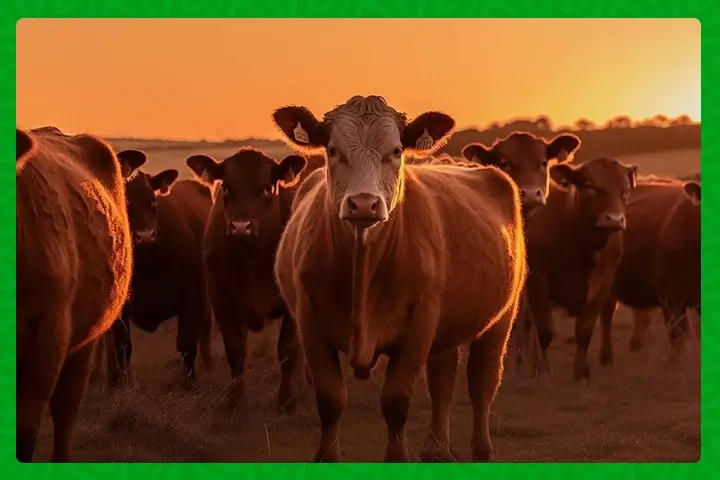
Nigeria is taking a bold step toward modernizing its livestock sector with a plan that blends practical engineering and digital smarts. The Federal Ministry of Livestock Development, led by Minister Idi Mukhtar Maiha, is rolling out specially designed vehicles to move animals in cleaner, safer, and more regulated conditions. The goal is simple and ambitious at once: protect animal welfare, reduce disease risk, and turn a fragmented supply chain into a trusted national system.
What is changing on the road and why it matters
For decades livestock in Nigeria has been moved in ad hoc, often unsafe ways. Animals travel in cramped or improvised vehicles, journeys are long and stressful, and traceability is almost non existent. The ministry’s program addresses those problems head on by introducing custom built wagons that meet hygiene and welfare standards, and by authorizing only registered transporters to operate.
This matters because safer transport reduces stress and injury for animals, lowers the chance of disease spreading, and improves meat quality for consumers. It also creates predictable, safer work for drivers and opens the door for industry standards that can encourage investment in processing and cold chain infrastructure.
A digital backbone for an old industry
The vehicles are only half the story. The ministry is pairing the new wagons with a centralized digital tracking platform being developed in partnership with OneServe Technologies Limited. The system will register transporters, approve vehicles, and monitor livestock movement across the country. In short, it turns what was once a paper trail or a folk-memory system into a real time, auditable network.
That platform will include searchable data on markets, species availability, market schedules, and routes. It will also connect users to verified professionals including veterinarians and registered transporters. Farmers, traders and buyers gain more reliable contacts and less dependence on informal, unverifiable networks. Over time this kind of transparency reduces friction, speeds trade, and makes it easier to enforce health requirements.
Better data means better planning
The ministry is also collecting nationwide data on abattoirs to map operational capacity and sanitary conditions. Knowing how many abattoirs are functional and where they are located is essential to planning a modern livestock value chain. Accurate data will feed into a longer term national livestock development plan that aims to professionalize the sector and attract private capital.
Minister Maiha has stressed that these initiatives are foundational. The data and digital systems will inform policy, target investments in processing facilities, and create measurable benchmarks for progress.
Private sector participation and jobs
A recurring message from the ministry is that government alone cannot transform the sector. Private investment is needed, particularly in meat processing, abattoir upgrades and logistics. The new vehicle standards and digital registry are designed to give investors confidence. When transporters are registered, vehicles meet standards, and movements are traceable, it reduces business risk and opens access to finance and formal markets.
For pastoralists, smallholder farmers and market traders, the benefits can be immediate. Cleaner transport and certified handlers reduce losses from injury and disease during transit. For workers, the new system can create better paid, formal roles such as certified drivers, vehicle technicians, and logistics coordinators.
Health, hygiene and trade opportunities
A big win from the combined vehicle and digital approach is disease risk mitigation. Traceability makes it possible to isolate and manage outbreaks faster. Standardized transport and better abattoir oversight raise hygiene standards and the credibility of Nigeria’s meat supply. That credibility is needed if Nigeria is to access stricter regional markets and to meet export protocols in the future.
Improved hygiene is not just a technical win. It builds consumer trust and helps local processors compete with imported meat products. That, in turn, creates demand for higher quality inputs across the entire value chain.
Practical steps ahead
Rollout will require careful sequencing. The ministry will need to finalize vehicle specifications, onboard and register transporters on the digital platform, and complete the abattoir survey work. Training for drivers and handlers will be essential, as will outreach to pastoralist communities to ensure buy in.
Private partners such as OneServe Technologies will play a key role in building the platform and training users. The ministry has emphasized that the platform will be a central hub, not a closed system. It will offer access to financial services and verified professionals which can accelerate adoption across markets and regions.
A quieter revolution
This program is not about flashy headlines. It is a quiet but meaningful modernization that touches farmers, traders, drivers and consumers. It replaces guesswork with data and improvisation with standards. If implemented well, it could become a blueprint for other countries grappling with similar livestock transport and traceability challenges.
Nigeria’s livestock sector is deeply important to rural livelihoods and national food security. By combining custom vehicles with digital registration and real time tracking, the ministry is betting on a practical, scalable model that protects animals, supports traders and creates a more resilient supply chain for the whole country.
Stay updated with the latest farming tips and agriculture industry news from Africa by subscribing to our newsletter. Don’t miss out on valuable insights and updates. Follow us on Twitter, LinkedIn, and Facebook to join our farming community and stay connected with us.


















